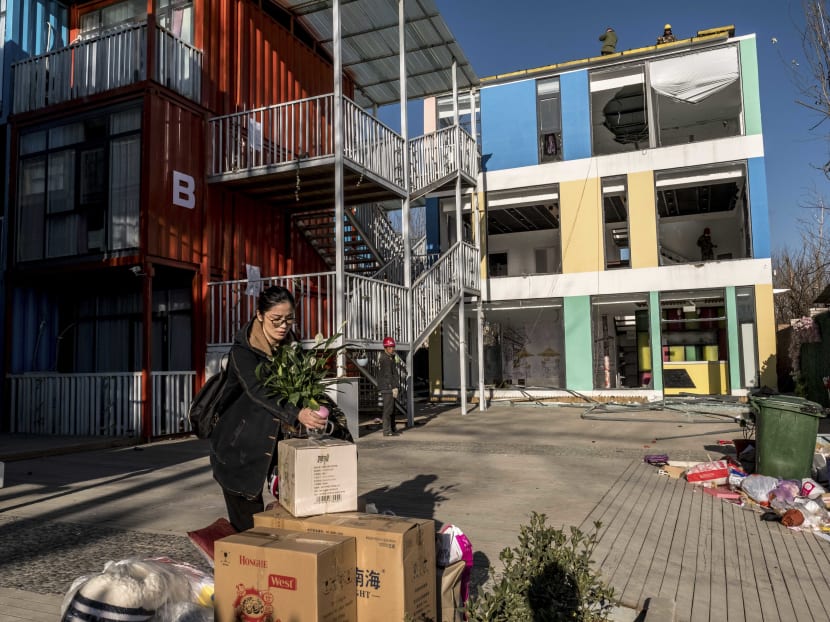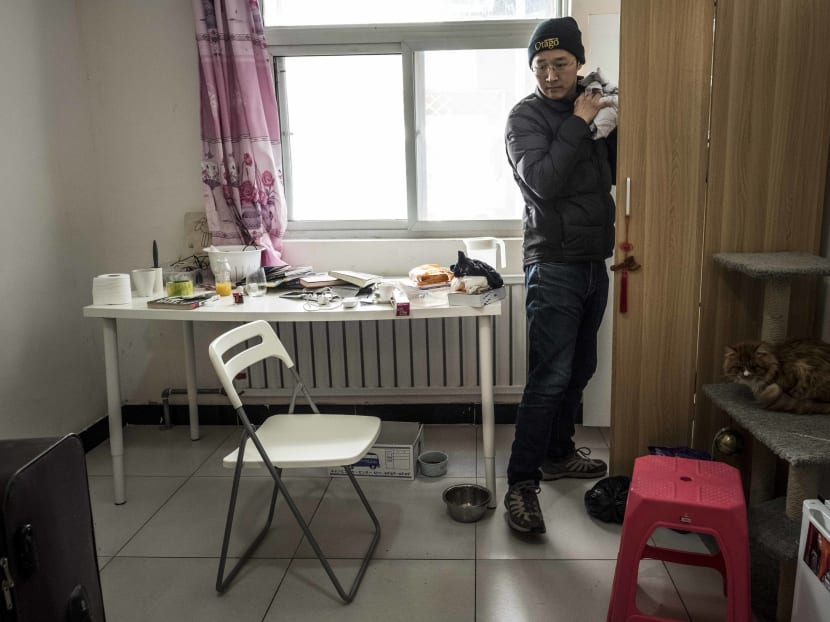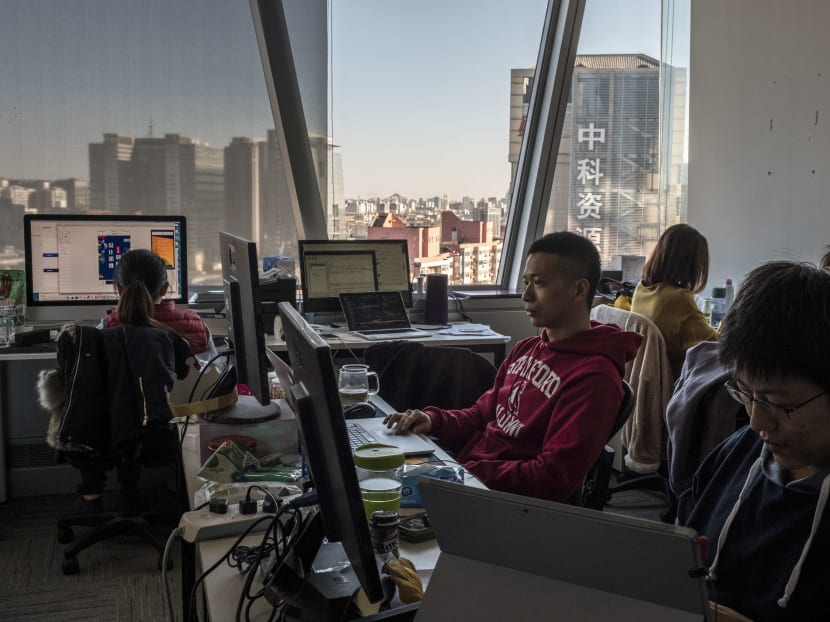Campaign to drive out migrants slams Beijing’s best and brightest
BEIJING — With coding skills, a foreign degree, fluent English and an apartment barely big enough for his espresso maker and two cats, Mr Si Ruomu thought he was the kind of go-getting young tech worker that Beijing needs to thrive in the 21st century.



BEIJING — With coding skills, a foreign degree, fluent English and an apartment barely big enough for his espresso maker and two cats, Mr Si Ruomu thought he was the kind of go-getting young tech worker that Beijing needs to thrive in the 21st century.
That was before the police arrived at his apartment building and ordered him and hundreds of others to vacate within 48 hours.
Like most of his fellow tenants, Mr Si had come from elsewhere in China to find work in the capital, which often treats migrants virtually as second-class citizens.
“One minute you’re drinking espressos, the next you’re being evicted,” said Mr Si, 28, a bespectacled programmer who grew up in northern China and studied computer science in New Zealand. “I’m starting to think whether people like me have a future in Beijing.”
As Beijing has launched its most aggressive drive in decades to rid itself of unwanted migrants, the brunt of the crackdown has fallen on labourers from the countryside.
But it has also hurt a different kind of migrant: educated and ambitious white-collar workers drawn to the city’s new economy of tech, finance and hospitality industries.
Beijing is a cultural, technological and commercial capital as well as a political one, and the tenements on its outskirts are home to tens of thousands of hopeful young college graduates who have moved here seeking better jobs and better lives.
These job seekers are treated as migrants in their own capital, because China’s biggest cities are fortresses of official privilege, especially Beijing.
The government gives residents with permanent residence permits, called hukou, more generous access to housing, schools and health care. But migrants must pay more for many services, and many live on the edges of Beijing, where rents are lower.
Now whole swaths of these neighbourhoods have been emptied and in many cases reduced to rubble as the authorities condemn buildings as unsafe or illegal and order migrants to leave.
That has ignited debate about how Beijing can function without the blue-collar migrants who serve as its cooks, cleaners and vendors, but there are also worries the campaign might harm the city’s fast-growing tech sector, which employs armies of migrants for relatively low pay.
“You can find this new displaced class in nearly every sector and business in the city, including manufacturing and IT,” said Mr Wu Qiang, a researcher in Beijing who has written about the expulsions. “The growth of a marginalised, unprotected workforce is a global phenomenon, but in China it’s especially found in so-called ‘villages in the city’ where migrants live.”
When the authorities arrive with eviction orders, many migrants search for newer, safer homes even farther from the city center. Others say they may abandon Beijing to find work elsewhere.
“This will certainly change my impression of this city. I don’t really want to stay in Beijing,” Mr Zhang Mi, 25, a web application developer from Hebei, the province surrounding the capital, said as he crammed his bags into a van after being evicted.
Most migrants in Beijing are manual labourers but a growing number are college graduates — nearly 30 per cent, according to a 2015 study. Another study found that the city’s software and information technology sectors employed about 346,000 migrants.
“To young tech workers like me, there’s really no option — only the big cities like Beijing have more opportunities,” said Mr Hu Xianyu, 22, an intern at Baidu, the internet search giant, who moved to Beijing from the northern province of Shanxi and was forced out of his apartment last month.
“Tech workers for the bigger companies can get help from them,” he said. “But for those working for small companies or startups, the evictions can be disastrous.”
Migrant workers have often reacted to the eviction orders with angry resignation. But small confrontations have flared up, and the largest and most organised protest broke out last Sunday, when hundreds of people in a neighbourhood in north-east Beijing scheduled for clearance gathered and chanted “violent evictions violate human rights.”
The effects of the crackdown are evident in Beijing’s booming e-commerce sector, which relies on legions of couriers — nearly all of them migrants — to deliver packages and meals on electric bikes.
Last month, five delivery companies warned of delivery delays after the expulsions.
Ms Gan Wei, secretary-general of the China Electronic Commerce Logistics Industry Alliance, said the companies represented by her group would have to raise delivery prices in Beijing about 20 per cent.
“Why is takeout food so cheap in Beijing? Because of all the cheap labour from the countryside,” said Mr Jia Dayong, 43, a stringy courier from the north-western province of Shaanxi who was being expelled from Banjieta Village, a migrant neighbourhood in northern Beijing.
“Nobody cares whether we have a place to live,” he said.
Beijing launched the eviction drive in late November, citing worries about cramped, substandard housing after an apartment fire killed 19 people, all but two of them migrants.
The government says a population of 21.7 million residents, 8.1 million of them classed as migrants, has put too much strain on the city.
Urged on by China’s president Xi Jinping, Beijing wants to cap its population at 23 million by 2020, and clear out gritty neighbourhoods that do not fit its aspirations to become a spick-and-span capital of monuments, malls and broad motorways.
“If they keep clearing out like this, Beijing will suffer a drought of employees next year,” said Ms Wang Le, 29, a hotel manager from the eastern province of Jiangsu.
She was one of about 100 tenants — most of whom worked in finance, technology and hospitality — living in steel shipping containers that had been converted into small, brightly painted apartments. They were being torn down on government orders.
In an attempt to slow the influx of job seekers, Beijing has cut the numbers of university graduates from other parts of China receiving the hukou permits that confer privileged status and benefits. But they have kept coming.
Without permanent residency, they are forced to live precariously. Trying to save money, many find cheap apartments in the same rundown neighbourhoods as migrants working menial jobs.
“Even if the industry I’m in is very high-level, as far as the government is concerned, I’m also a peasant worker, a migrant worker,” said Mr Zhang Xingwang, 24, who studied automation in college and came to Beijing from Hebei province seeking work as a software programmer.
He had to find new housing after his old apartment near where the deadly fire broke out last month was demolished. “I thought Beijing would be relatively fair and tolerant, and the government would behave better,” he said.
China’s big tech firms have refrained from criticising the migrant crackdown, perhaps out of fear of angering the government.
Alibaba, the online commerce giant, said the overall effect on its business “hasn’t been significant.”
But some experts have warned that by choking off the flow of migrants, Beijing risks losing entrepreneurial energy.
Even before the recent expulsions, Mr Yin Deting, a demographer who advises the Beijing city government, warned that heavy-handed clearances of migrants would accelerate the aging of the city’s workforce.
“If we place our hopes for reducing the population just in demolishing illegal buildings and low-grade markets, the actual outcomes may well be contrary to what is hoped for,” Mr Yin wrote this year.
Mr Si, the programmer who studied in New Zealand, eventually found a place to stay on the eastern edge of Beijing where he could keep his cats. He said he was weighing whether to move to a more tolerant Chinese city, or leave the country again to resume his studies.
“I don’t think this will ever work,” Mr Si said of the crackdown. “There are job opportunities in Beijing, and government policies can’t stop people moving to get jobs. If you do, the city pays a heavy price.” THE NEW YORK TIMES






